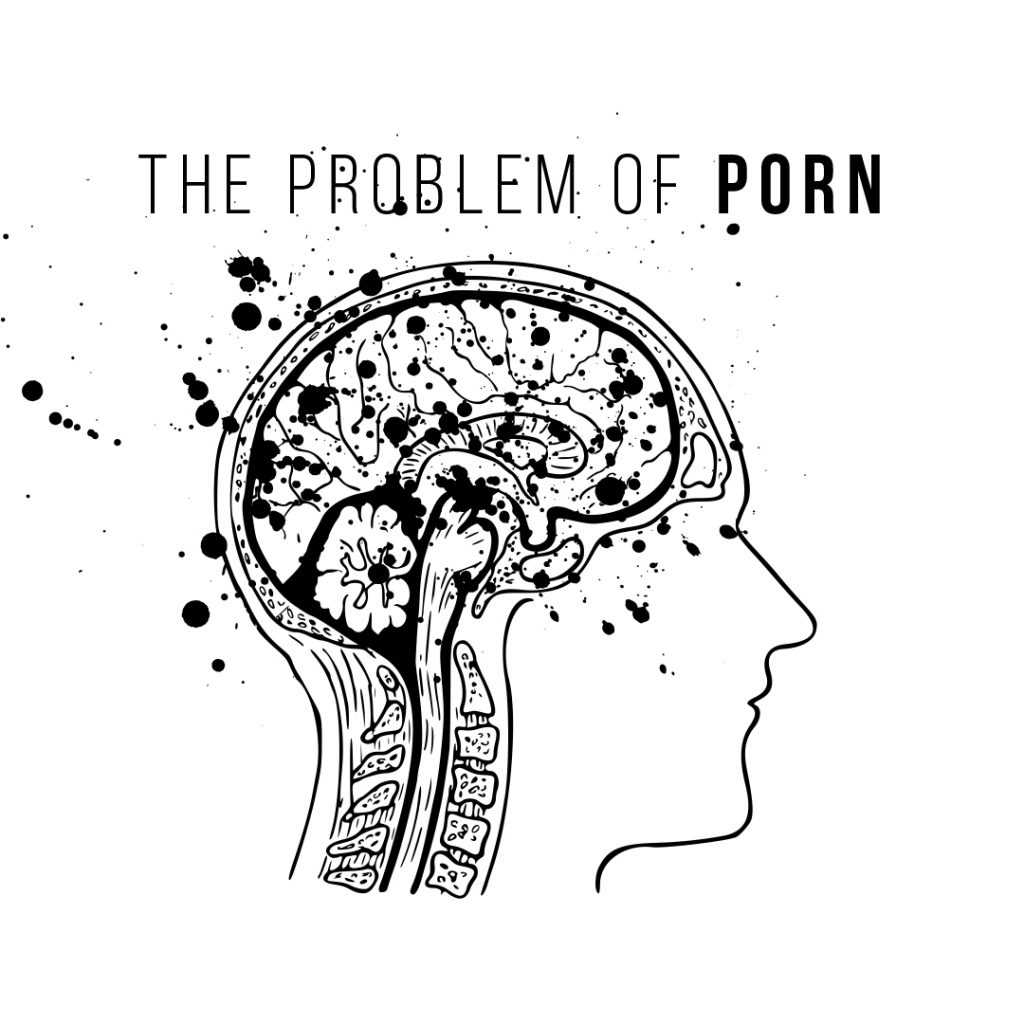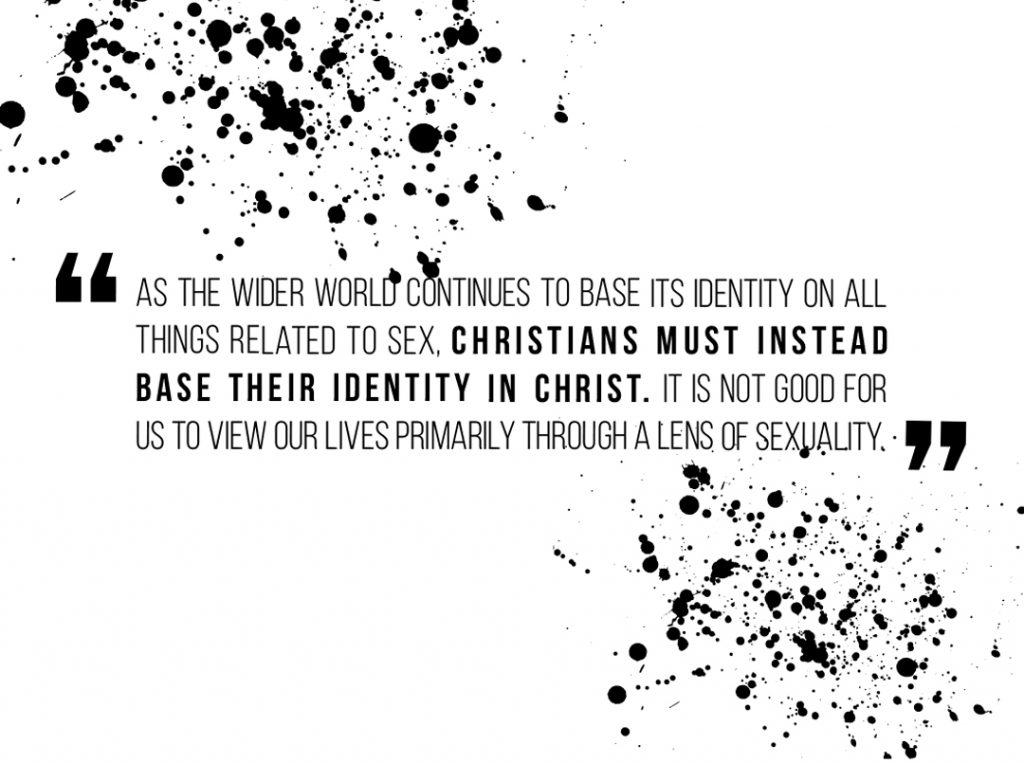The Problem of Porn
 by Peter Knelson
by Peter Knelson
When I was a teenager, I struggled with pornography. As time went on, however, my involvement in the Church led me closer to Christ and further from pornography. But that is not everyone’s story: today pornography has permeated even into the Church where it afflicts the consciences of many Christians. That reality has profound psychological and theological consequences. But there is hope: broken souls can be led back to Christ and out of the ongoing guilt of pornography.
The damage of pornography is multi-faceted. This ranges from the negative impact it has on those in the industry (especially vulnerable women) to the dehumanizing influence it has on relationships in society more broadly (with its tendency to encourage us to see others as mere objects for our personal gratification rather than as real people) to the psychological and theological damage it inflicts on users.
Numerous studies over many years have shown that those who consume pornography today are in the majority in North America. It should be no surprise as a result to find our culture is obsessed with all things related to sex. But while it may not be surprising, it is frightening. Pornography used to be something you had to search out intentionally and purchase at a store. Now, not only is it easy to access, it is increasingly difficult to avoid; sexual imagery is everywhere on the internet. The psychological damage of pornography has been well documented over the years. Those wishing to learn more about these effects would do well to check out the 2016 article “Porn and the Threat to Virility” in Time Magazine (you can find it easily online). There are also good resources available at fightthenewdrug.org.
As important as the psychological aspect of pornography is, as a pastor I am particularly interested in exploring the theological damage that pornography inflicts on users. The most obvious damage has been on the societal scale, with many people today distrustful of the Church and its teachings on sex. Christianity defines sex as a good gift to be enjoyed exclusively by a husband and wife, and they forbid any deviation from that model as sin. The world, by contrast, claims that this attitude represents an act of hatred toward those who receive pleasure from other forms of sexual behaviour. Offended by the Church’s teaching on sex, some may be tempted to reject Christianity entirely and so reject the salvation offered to them in Christ.
 Sadly, today even some churches promote the idea that sexual immorality is permissible within the Christian faith. Unsurprisingly, they also often claim that not all Scripture is divinely inspired. These churches teach that theology must develop in the context of the society around us. The problem is, we live in a society that is ruled by sexual images and pornography—a situation with multiple negative consequences. Should we allow our theology to be shaped by such a culture? Certainly not. As the wider world continues to base its identity on all things related to sex, Christians must instead base their identity in Christ. It is not good for us to view our lives primarily through a lens of sexuality.
Sadly, today even some churches promote the idea that sexual immorality is permissible within the Christian faith. Unsurprisingly, they also often claim that not all Scripture is divinely inspired. These churches teach that theology must develop in the context of the society around us. The problem is, we live in a society that is ruled by sexual images and pornography—a situation with multiple negative consequences. Should we allow our theology to be shaped by such a culture? Certainly not. As the wider world continues to base its identity on all things related to sex, Christians must instead base their identity in Christ. It is not good for us to view our lives primarily through a lens of sexuality.
Paul reminds the Church, “You are not your own, for you were bought with a price. So glorify God in your body” (1 Corinthians 6:19-20). Paul was also addressing a culture full of sexual immorality. He encourages the Church instead to remember their identity in Christ, saying, “He who is joined to the Lord becomes one spirit with Him” (6:17). It is wise for us to continually draw near to Christ and find our identity in Him; only in Christ do we find true fulfillment.
The theological damage done by pornography is similar in some respects to other types of sin. Satan seeks to deceive Christians in the most subtle ways, first leading us to sin and then accusing us, hoping that we will be driven to despair. When one first begins to use pornography, it can feel harmless and perhaps even good. But by the time the damaging effects of pornography take hold, the individual feels trapped (at least, this is what Satan wants you to believe). This is the way sin operates: it seems harmless until you try it out, and then suddenly you find yourself separated from God and panicking that you will never find your way back to Him.
We see this play out in the Garden of Eden when Satan downplays the severity of disobeying God’s command about eating from the tree of knowledge of good and evil. Eating the fruit, Adam and Eve suddenly realize that they have sinned and so hide from God because of their shame. In the same way, the guilt someone experiences from using pornography can leave you feeling hopeless and wishing to hide from God.
The danger of using pornography is that it can lead you deeper into habitual sin. This can lead you to question your worth before God and perhaps drive you to despair and distrust of God’s forgiveness.
But hiding is what Satan wants you to do. Christ does not want you to hide from Him because of your sin; He wants to forgive that sin. “If we claim to be without sin, we deceive ourselves and the truth is not in us,” John writes. But “if we confess our sins, He is faithful and just and will forgive us our sins and purify us from all unrighteousness” (1 John 1:8-9). Confess your sins to God, and trust that He forgives you.
The danger of using pornography is that it can lead you deeper into habitual sin. This can lead you to question your worth before God and perhaps drive you to despair and distrust of God’s forgiveness.
What, then, is the solution to pornography? Ultimately, the solution to pornography is the same as with all sin: Christ Jesus. But there are also practical ways to help manage desire for pornography. From a psychological perspective, it’s important to remember that pornography can reshape how you think. For that reason, it can be helpful to find a counselor who can challenge your thought processes and help you discover healthier ways of thinking and living. Counselling is expensive for many, but the cost can be worth it if you want help managing your mental health. If you want a good product, you will pay a considerable price for it; that’s also true when it comes to maintaining a healthy mind.
 That’s one way of dealing with pornography use on a psychological level. But the solution to pornography on a theological level is far more costly. The sin of lust must be paid for; but paying for your life of sin would cost a blameless life—something you don’t have. Spending money in an effort to purchase forgiveness of sins would be a bad investment.Instead, Christ has paid the price of your sin with His own life. Trust the Scriptures and the forgiveness of Christ contained in them. Embrace and live out your new identity in Him. He has already dealt with your sin by dying on the cross to forgive each and every one of your sins, whether it is a sin of sexual immorality or any other sin.
That’s one way of dealing with pornography use on a psychological level. But the solution to pornography on a theological level is far more costly. The sin of lust must be paid for; but paying for your life of sin would cost a blameless life—something you don’t have. Spending money in an effort to purchase forgiveness of sins would be a bad investment.Instead, Christ has paid the price of your sin with His own life. Trust the Scriptures and the forgiveness of Christ contained in them. Embrace and live out your new identity in Him. He has already dealt with your sin by dying on the cross to forgive each and every one of your sins, whether it is a sin of sexual immorality or any other sin.
But what if I continue to sin? Paul asks the question in a different way: “Are we to continue in sin that grace may abound?” His answer? “By no means! How can we who died to sin still live in it?” (Romans 6:1-2).
So where do we go for help? What is the theological solution to living a future free from besetting sin? Here again, the answer is Christ. He not only forgives us our sin; He is also the strength we rely on as we seek to live a new life. Harold Senkbeil explains it well in his book The Care of Souls: “Jesus remains the heart of sanctification just as He is the heart of justification. The forgiveness of sins through Christ our Lord is the centre of both.”
Go to Christ then with all of your struggles. Find forgiveness of sin in His Word and Sacraments. Continue to draw closer to Christ, and you will find that the appeal of sin begins to lose its lustre. Invest yourself into Christ, and you will find fulfillment—true fulfillment—in Him. “You are not your own, for you were bought with a price. So glorify God in your body” (1 Corinthians 6:19-20).
———————
Rev. Peter Knelson is pastor of St. John’s Lutheran (Warman, SK). He also releases Christian metal music under the name “Lutheran Leavener,” and recently released a song exploring the nature of pornography and its impact on people today.



